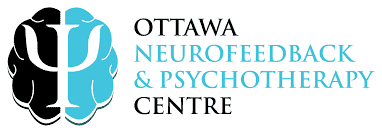Most cases of obsessive-compulsive disorder (OCD) are dismissed as just being “overly tidy”, but many people aren’t aware that OCD is a chronic and often debilitating disorder that can cause intense and distressing thoughts and repetitive behaviours among those who suffer from it. For those who have loved ones diagnosed with OCD, it’s crucial to understand what OCD is, what causes it, its symptoms, and what the available treatments for it are.
Understanding OCD
Obsessive-compulsive disorder (OCD) is a mental health disorder that involves obsessions and compulsions. It’s not just about being overly clean, tidy, or organized – people with OCD struggle with obsessions, which are persistent, intrusive, and unwanted thoughts, images, impulses or doubts that cause serious distress or anxiety.
Alongside obsessions, people with OCD also struggle with compulsions, which are repetitive behaviours or mental acts that people feel compelled to do in response to their obsessions. OCD can take many forms, and people who struggle with it may experience different kinds of obsessions and compulsions.
What are the root causes of OCD?
It’s difficult to pinpoint – most studies suggest that like other mental health conditions, it’s likely a combination of biological, genetic, and environmental factors.
In terms of neurological research, some brain imaging studies have shown that people with OCD have different activities in certain areas of the brain, particularly in the orbitofrontal cortex and the basal ganglia.
These areas are involved in decision-making, planning, and movement control. Meanwhile, some research has suggested that OCD may be related to imbalances in certain neurotransmitters, such as serotonin.
These studies show us that there are indeed differences between normal brains and the brains of people with OCD, and this must be understood, accepted, and acted on, especially when it comes to treatment plans.
What is compulsive behaviour?
Those who are diagnosed with OCD often struggle with compulsive behaviour, which refers to the repetitive and ritualistic behaviours, compulsions, or mental acts that those with OCD feel compelled to perform.
Compulsive behaviours can take many forms, like excessive cleaning, which is what most people know is OCD. However, behaviours like checking, counting, or arranging objects are also considered compulsive behavior. These behaviours must be performed to reduce their anxiety or prevent something bad from happening.
What are OCD symptoms?
The symptoms of OCD can vary from person to person, but the following are the typical ones:
Obsessions: These are intrusive, persistent, and often unwanted thoughts, images, impulses, or doubts that cause distress or anxiety among those who suffer from OCD. Some examples include the following:
- Fear of contamination: excessive concern about germs, disease, or getting dirty
- Fear of harming oneself or others: intrusive thoughts or images of violence, harm, or accidents
- Intrusive sexual or religious thoughts: unwanted sexual or religious thoughts or images that go against personal values or beliefs
Compulsions: Different from obsessions, compulsion are repetitive behaviours or mental acts that people with OCD feel compelled to do in response to their obsessions, such as:
- Excessive cleaning or handwashing: washing hands or cleaning surfaces repeatedly and excessively to reduce fears of contamination.
- Checking: repeatedly checking things like locks, appliances, or personal items to ensure they are safe or secure
- Ordering or arranging: feeling the need to arrange objects or perform tasks in a certain way to reduce anxiety or prevent harm.
- Mental rituals: repeating certain words, prayers, or counting to neutralize unwanted thoughts or images
Anxiety and Depression: Most people aren’t aware that OCD can lead to significant anxiety, worry, and depression due to the distressing nature of obsessions and compulsions, as well as their impact on people’s day-to-day life and relationships.
Avoidance Behaviours: People with OCD may avoid certain situations or activities that trigger their obsessions or compulsions, such as avoiding public spaces or social interactions. And while this relieves their anxiety temporarily, this avoidance can actually lead to isolation and difficulty functioning in daily life.

What is mild OCD?
Most people aren’t aware that there’s regular OCD, and there’s also mild OCD, which refers to a form of OCD where the symptoms are less severe. And while mild OCD symptoms don’t significantly interfere with daily functioning, those with mild OCD may experience occasional obsessions or compulsions. These mostly don’t result in distress or disrupt their daily routines, but for the best results, it’s always good to consult with an OCD therapist or specialist.
Is OCD a disability?
In some cases, it is. OCD can be classified as a psychological disability, especially if the client’s OCD therapist diagnoses and assesses the client with severe symptoms that limit them from doing their day-to-day activities freely; without any obsessions and compulsions.
How do you manage/treat OCD?
There is always hope for those who suffer from OCD, as there are a multitude of effective treatments available for OCD. The most common treatments for OCD include cognitive behaviour therapy (CBT) and medications.
CBT is a type of therapy that focuses on changing negative thought patterns and behaviours, and there are specified types of CBT tailored to address OCD symptoms. One type of CBT is called exposure and response prevention (ERP), which is often used by a certified OCD therapist to gradually expose individuals to their fears while encouraging them to resist performing their compulsions.
Meanwhile, there’s also acceptance and commitment therapy (ACT), which is another type of CBT that involves identifying personal values and moving towards these despite the presence of obsessions and compulsions and incorporates mindfulness.
And lastly, medications can also be used against OCD, and some commonly prescribed medications include selective serotonin reuptake inhibitors (SSRIs). These are helpful in reducing symptoms of OCD, but take note that medications are still subject to the assessment of the OCD therapist.
What is the best type of therapy for OCD?
The best treatment for OCD depends on the client’s response to therapy and to medication, which must always be done with the supervision of the OCD therapist. Sometimes a combination of medication and therapy for OCD, particularly CBT, is the best treatment plan for OCD.
As CBT has proven to help with many cases of psychological conditions, those who are struggling can learn to respond differently to their obsessions, to disengage from compulsions and to reduce avoidance.
Meanwhile, as mentioned previously, exposure and response prevention (ERP) has been shown to be particularly effective in treating OCD. There are also CBT variations like ACT, as well as mindfulness-based therapies and other complementary therapies that may also be helpful in managing symptoms of OCD.
What is the best type of medication for OCD?
The best medicine for OCD depends on individual circumstances and may vary from person to person. SSRIs are the most prescribed medications for OCD and can be effective in reducing symptoms. Other medications, such as clomipramine, may also be used to treat OCD.
Conclusion
OCD is a complex and often distressing mental health condition that affects many people across generations and all over the world. While the exact cause of OCD can’t be reduced to just one, effective treatments are available, including CBT and medication.
It’s always good to keep ourselves informed with the facts on OCD, and to avoid being dismissive of those who struggle with it. Our loved ones who have OCD need a solid support system, therapy, medications if necessary, and appropriate psychoeducation.
Author Joanna Jeffers, M.A., C.Psych.




